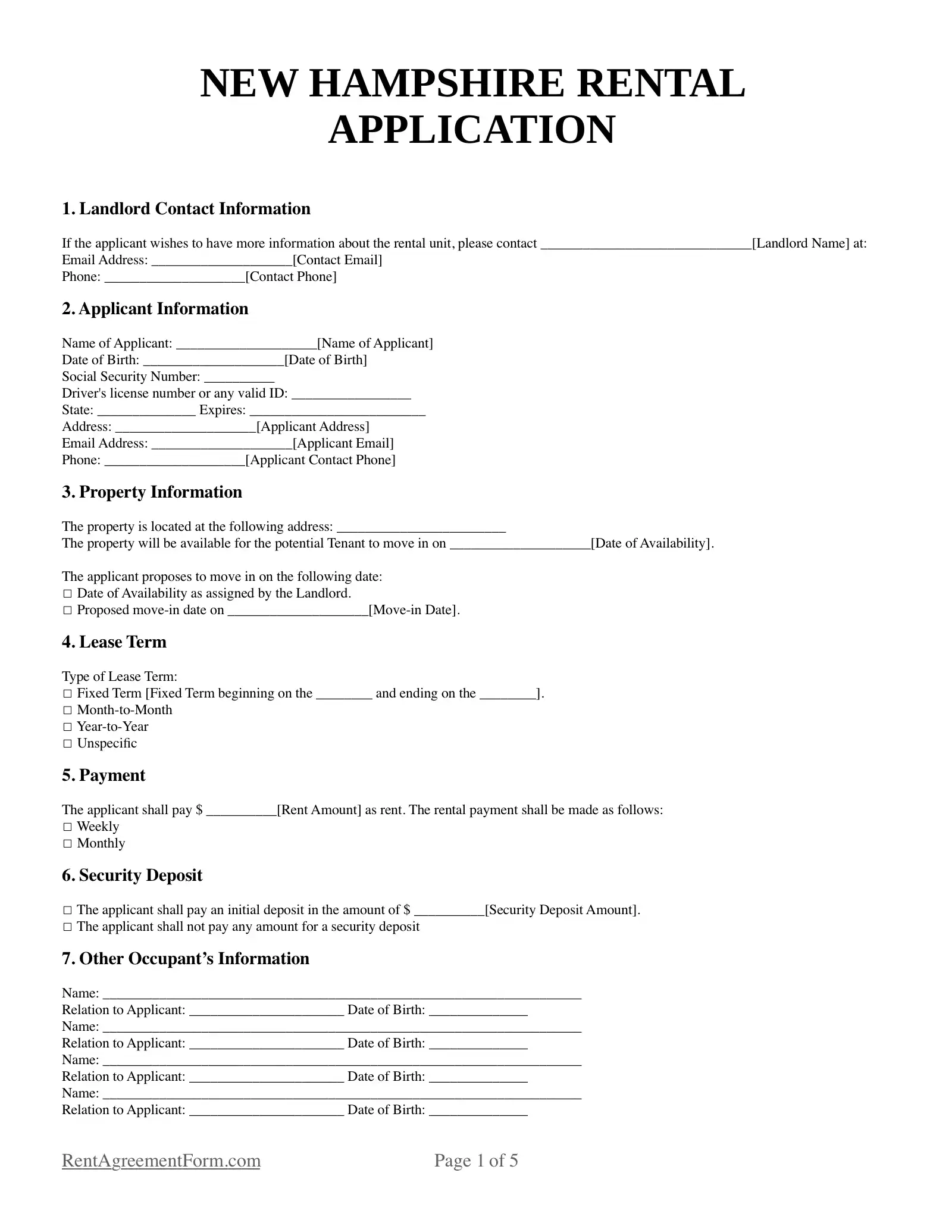New Hampshire Rental Application Form
If you’re looking to rent residential property in New Hampshire, you’ll need to look for rental units that you’d like to live in. The second thing you’ll need is a New Hampshire rental application form.
What is a rental application form? It is a document that a prospective tenant fills out for two purposes. One, it signifies your interest in a rental property, and two, it provides consent so that a background check can be performed on you.
In many cases, there are multiple people interested in a property. The landlord must do a background check to ensure that the chosen tenant is someone with good credit and is known for paying rent on time.
The landlord’s background will not only look at one’s credit and income but will also look into a prospective tenant’s eviction record, if there is any. A history of eviction is a disadvantage because the landlord will think it may happen again on their property.
In the same manner, a criminal history may make a landlord hesitant about your application. However, it can also depend on the crime because the main consideration is the safety of the other tenants.

Rental Application Fee for New Hampshire
There is no law or statute covering the rental application fee in New Hampshire so landlords can collect any amount they choose.
The fee will cover the cost of the background check, which could be done by the landlord or by a third party. It is non-refundable. However, the potential tenant should know that the landlord must collect the same amount from all applicants. There should be no bias in the collection of fees.
There should also be no bias in approving rental applications. According to the law: “The Federal Fair Housing Act prohibits discrimination by direct providers of housing… whose discriminatory practices make housing unavailable to persons because of race or color, religion, sex, national origin, familial status, or disability” (The Fair Housing Act).
Rental Application Security Deposits in New Hampshire
A New Hampshire landlord may collect a security deposit of $100 or one month’s worth of rent, whichever is higher. The security deposit provides financial security for the landlord in case the tenant misses a rent payment or causes damage to the property.
Unlike the rental application fee, the security deposit is refundable. The landlord has 30 days to return the security deposit to the tenant or its balance after the lease ends. A landlord may deduct the cost of cleaning the property or repairing damage at the end of the tenancy.